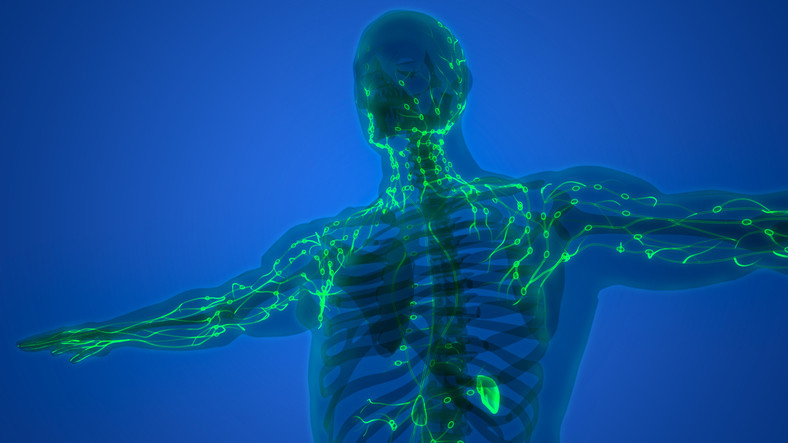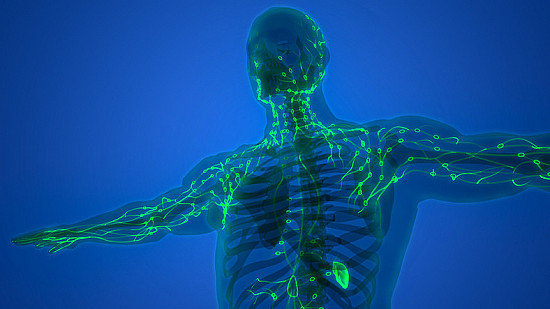
Here’s a question you may not have been asked lately: what do you know about lymph nodes?
If your answer is “not much,” you’re not alone. But even as our lymph nodes maintain a low profile, they’re working around the clock to deal with potential health problems ranging from common viruses to deadly bacteria and even cancer.
Read on to learn more about these workhorses of the immune system as they stand guard against outside invaders and rogue elements within our bodies.
What are lymph nodes?
Your lymph nodes are one part of the immune system that helps defend the body against health threats. These bean-shaped, pea-sized mounds of tissue form a network of clusters throughout the body. They filter lymphatic fluid (lymph), a white-yellow fluid that originates in the bloodstream.
The human body has hundreds of lymph nodes. They’re most plentiful — and most noticeable — in the neck, armpits, and groin. They’re also abundant in the chest and abdomen, where they’re observable by imaging tests such as CT or MRI scans.
Sometimes, lymph nodes are called glands (as in: “when I had mono, I had swollen glands in my neck”), but that’s not really accurate. Glands such as the thyroid gland produce hormones or other chemicals that have effects elsewhere in the body. That’s not what lymph nodes do.
How does lymph reach our lymph nodes?
Lymph is created when plasma, the liquid part of blood, seeps out of tiny blood vessels and flows into connecting channels that link lymph nodes throughout the body. These connecting channels are known as the lymphatic drainage system.
After lymph passes through lymph nodes, it eventually returns to the bloodstream through lymphatic channels.
What do lymph nodes do?
Our lymph nodes scour lymphatic fluid for infection or other potential triggers of illness. If threats are found, white cells called lymphocytes, and other immune cells within the lymph nodes, identify and try to eliminate them.
The main functions of your lymph nodes are:
- detecting and eliminating infectious organisms
- removing abnormal cells, including cancer cells and precancerous cells
- eliminating damaged cells or cell products that might cause illness.
Is it normal for lymph nodes to swell and become painful?
It’s normal for lymph nodes to enlarge and become tender when they’re doing their job, especially when reacting to an infection. These reactive lymph nodes can become as large as grapes and painful to touch. But that’s only temporary: they should return to normal promptly when the infection resolves.
For local infections such as a skin infection or sore throat, the lymph node enlargement is limited to the part of the body near the infection. However, for bodywide infections such as HIV or mononucleosis, lymph node enlargement may be more widespread.
Can disease begin in lymph nodes?
Though they usually function as a helpful part of the immune system, diseases sometimes start in lymph nodes.
Lymphoma is a type of cancer that begins in the lymph nodes or in lymphatic tissue elsewhere in the body (including bone marrow, the spleen, or the intestinal tract). Rare inflammatory conditions can also involve lymph nodes; two examples are Castleman disease and Kikuchi disease.
Infections can affect the lymphatic system. Lymphatic filariasis, a parasitic disease spread by mosquitoes, is a good example.
Imagining a world without lymph nodes
Because they play an important role in the body’s immune defense, having no lymph nodes would likely mean having more and longer-lasting infections. In addition, an infection that might ordinarily be confined to one part of the body might spread more easily.
Considering all the ways in which lymph nodes help us stay healthy, it may seem surprising how commonly they’re removed. One or more lymph nodes may be removed to determine if they are cancerous, or if a newly diagnosed cancer (such as breast cancer) has spread to the lymph nodes. But since we have hundreds of lymph nodes, this sort of lymph node removal is unlikely to cause problems with immune function.
Sometimes lymph node surgery impairs lymphatic drainage. When this occurs, fluid can accumulate in nearby tissues. Chronic swelling called lymphedema can be a complication.
The bottom line
While there are many steps you can take to maintain a healthy immune system and good health — choosing a healthy diet, exercising regularly, not smoking, and more — you can’t do for yourself what your lymph nodes do for you.
So, even though the humble lymph node is easy to overlook, we should all be glad we have them.
